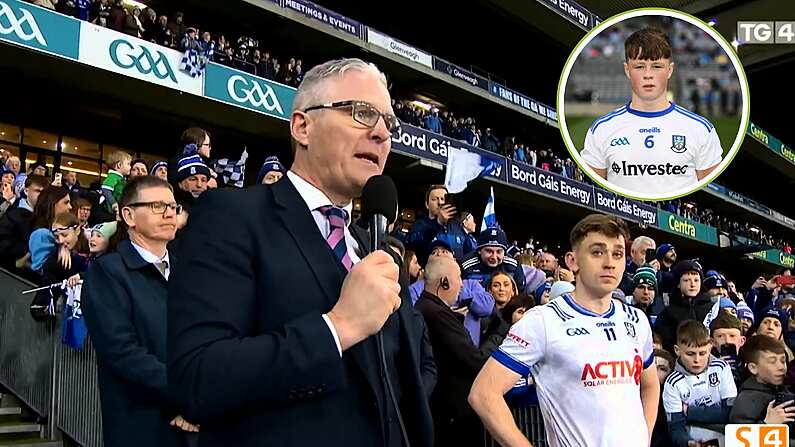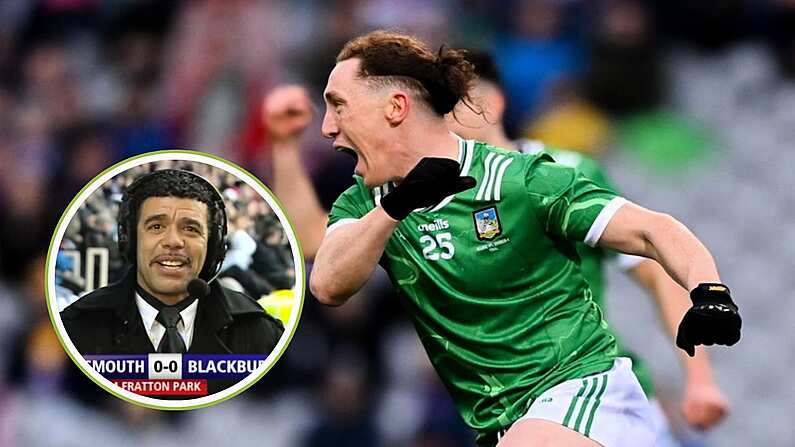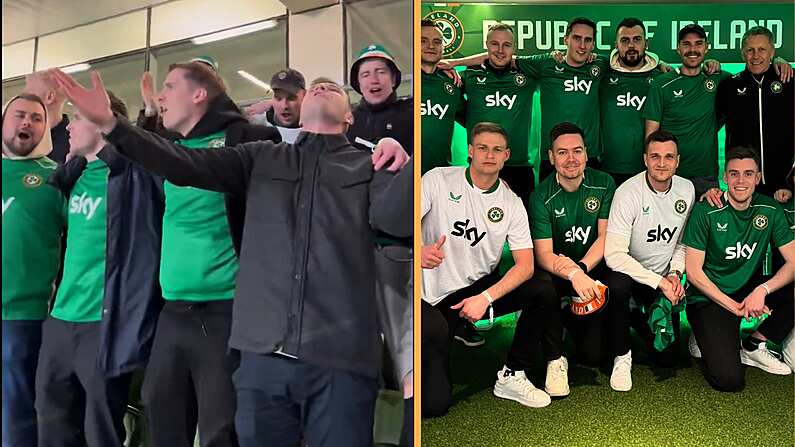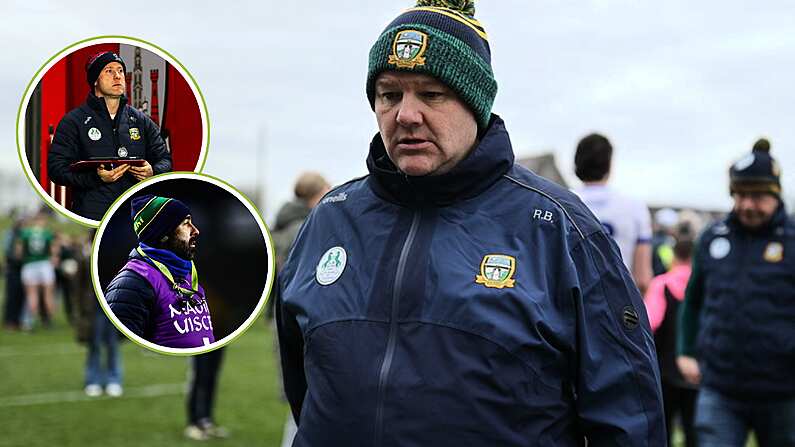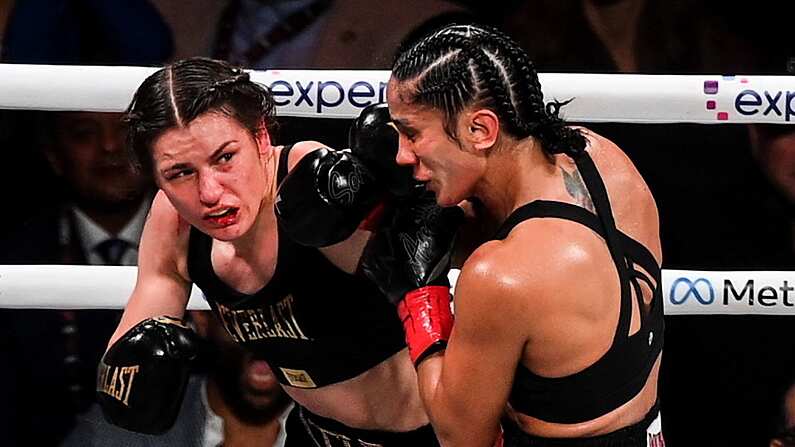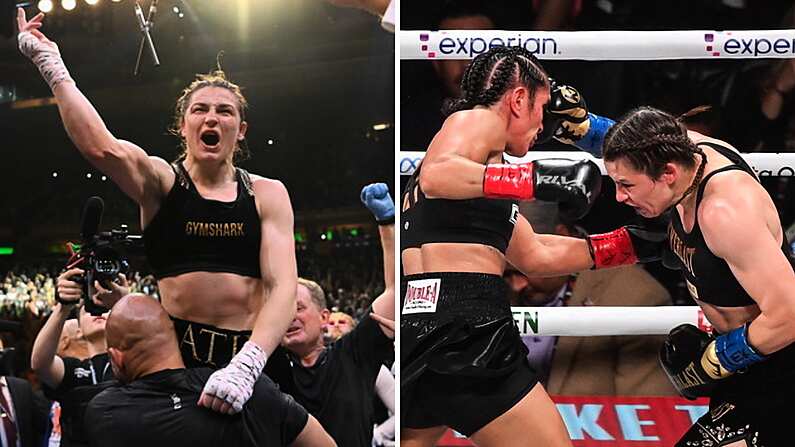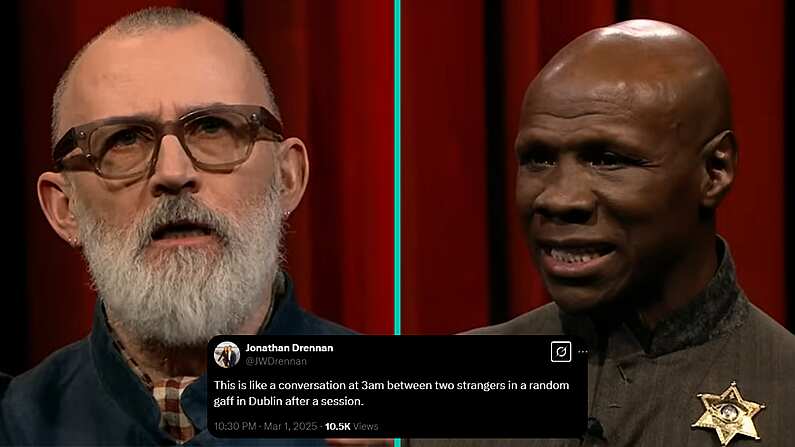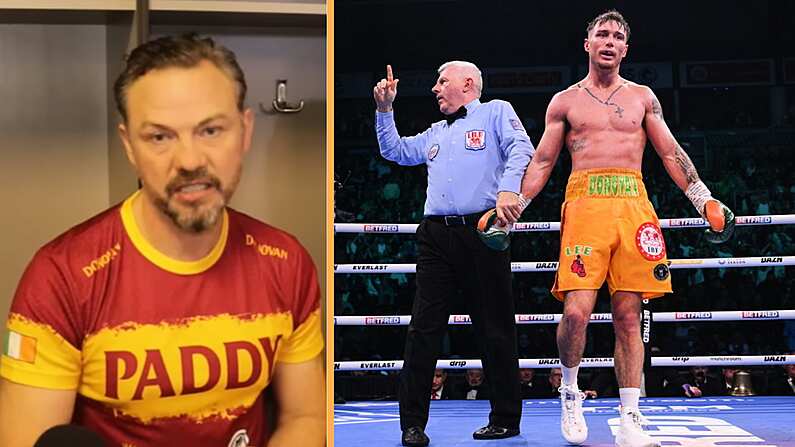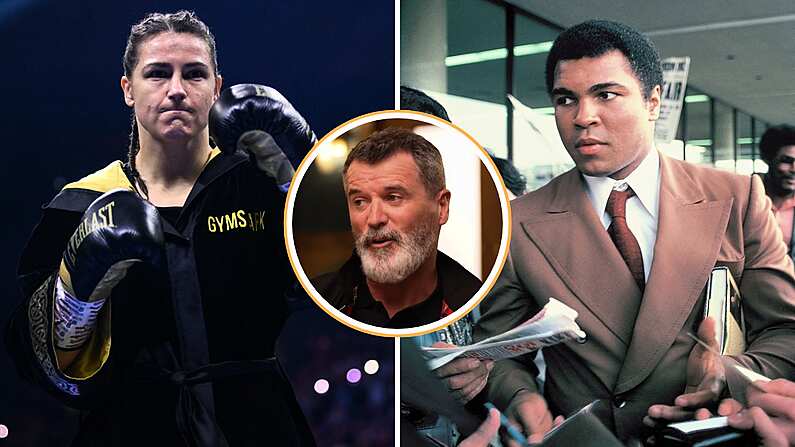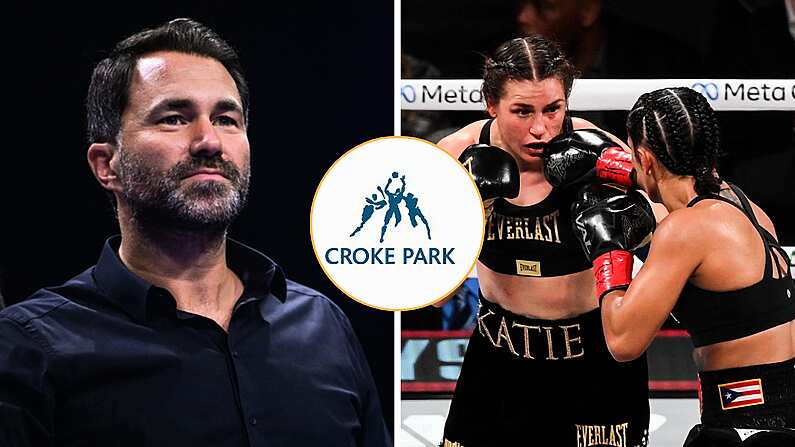In the days following his historic success in Las Vegas last Saturday night, decade-old footage of Tyson Fury began to make its way through the realms of social media, a portal back to a more humble time for the Mancunian who has irrefutably become the heavyweight division's biggest star, arguably since Mike Tyson.
The clip, put out there by RTÉ, of Fury speaking to Marty Morrissey following an early career victory in 2009 was illuminating in the aftermath of his victory over Deontay Wilder, a win which will surely enter Fury's name into the pantheon of heavyweights whose names still roll off the tongue in every corner of the globe.
Even then, as pretty much all aspiring boxers do, Fury talked a big game and vowed to anyone that cared to listen that he would bring a world title back to Ireland one day. Irish people had heard it all before. And few will have given much credence as they awaited the main act of the evening, Bernard Dunne, to take to the ring for what would prove to be his final bout.
Anyway, this 21-year-old hadn't even made it to the Olympics, no mind win a medal when he got there, which at that time went a long way to capturing the public's imagination. Only a year earlier Irish boxers returned from Beijing with three medals, each recipient earning the adulation of the Irish public in the process.
In 2009 a very young @Tyson_Fury fought in front of an excited Dublin crowd and promised @MartyM_RTE that he would win a world title and defend it in Croke Park.
Watch more of the event here: https://t.co/xPb8YfDQn6
Read: https://t.co/7lDD5w0D3F pic.twitter.com/vOnWrkfE50— RTÉ Sport (@RTEsport) February 24, 2020
Fury may not have been afforded the opportunity to take on Beijing, but who would have guessed on that autumnal night at the O2 that he would eclipse the headline act of the evening throughout his own professional career? He would also proceed to be the one up-and-coming Irish amateur of his generation to immortalise his name in boxing folklore the world over.
As he spoke to Morrissey, many people would have been encountering the future icon for the first time and it could be said that first impressions didn't leave an indelible print in the mind of a world champion-in-waiting.
Visually, he didn't boast the lean appearance of the elite fighters the casual fan had become accustomed to, exhibiting instead all the hallmarks of a future slugger who would talk a good game only for the big paydays to come his way, knowing deep down perhaps that he would amount to little more than a journeyman in the end.
Of course these are conclusions that would have been reached with little appraisal given Fury was ranked highly as an amateur and fell out of favour for the Olympics largely due to complaints regarding his Irish eligibility. More to the point, boxing isn't a beauty pageant, nor is it a bodybuilding contest as Fury has repeatedly claimed.
This young pugilist was an erudite student of the sport, growing up watching footage of the greats, taking mental notes of their movements; the above views, meanwhile, were those of the uneducated eye - of which there were many back in 2009.
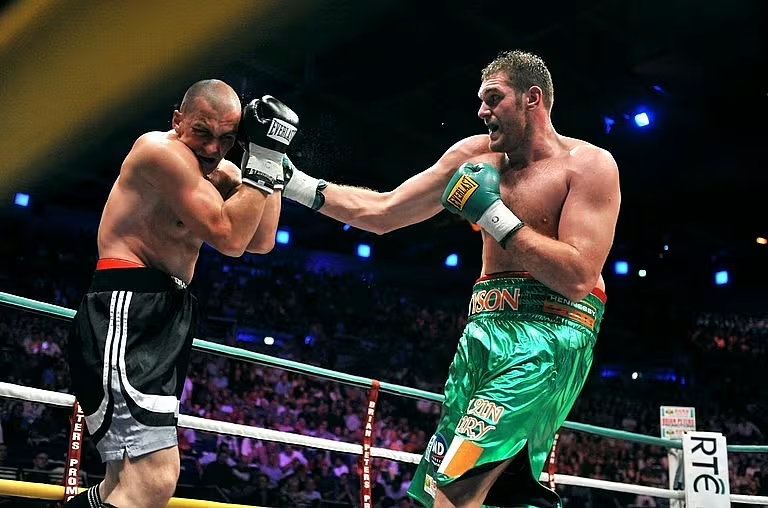
The educated will have noted the minutiae of the night. They'll have noted the bobbing head and delicate footwork, and a giant frame that manoeuvred like champion figure-skater on an Olympic rink.
Going back now, after he has followed through on his promises of world domination, it's interesting to hear the man speak of his Irish connections after his first fight outside England.
"That's right, yeah, " he told Morrissey after the RTÉ interviewer inquired about his connections in Tuam. His father, John, was born in the North Galway town.
My Grandad's people are from Roscommon and my Granny's people are from Tipperary - so, all around really.
To be on the undercard of Bernard Dunne is just an inspiration - getting yourself up there and doing well, to keep winning. One day I'll come back here with a world title and I'll defend it at Croke Park."
But Ireland as a country has never had a great desire to claim the divisive heavyweight. Some would say it's due to a lingering sense of casual racism towards Fury's traveller ethnicity. Others may point to the litany of offensive statements he's delivered over the years.
This is the thing, though: opinions, regardless of how disgustingly abhorrent they may be, do not define a person's nationality. A person's individual beliefs can be questioned, they can be condemned and they can also be ridiculed, but the same cannot be said for their nationality when there is evidence of lineage, and this is perhaps a point that has been lost on some, especially those who struggle to understand the concept of dual-nationality.

If he considers himself Irish, as he has done consistently, then we should accept him as such regardless of background and ability and views - no matter how toxic the latter may be.
So, that considered, is Tyson Fury actually Irish or is he simply using the country's heritage and the apocryphal "Fighting Irish" tag as a marketing advantage?
The answer was comprehensively answered on IrishBoxing.com, a gospel for Irish Boxing fans, as far back as 2015 when the self-styled Gypsy King first claimed the world title in Dusseldorf.
Outlining the "facts" that prove the heavyweight's Irish credentials, boxing journalist Joe O'Neill stated:
"There is nothing to be gained by arguing if someone is more Irish or more English. They are Irish and English and the conversation should end there."
And if that rationale applies to other sports, most notably football and rugby, then there's no reason the same principle shouldn't apply to Fury and boxing.

Moreover, in presenting a lengthy list of facts the article also referred back to an earlier interview whereby Fury told the website:
"I think I have showed my true colours over the years. I vacated the British and Commonwealth titles, which some people say are more prestigious than the Irish title, but not to me. I vacated those belts for an Irish title shot because it meant more to me. All my people are from Ireland. I was born in Manchester but I am Irish."
The Mancunian's peripatetic existence as an amateur, that saw him traverse over and back across the Irish Sea, has probably led to the confusion over his eligibility that still exists today. But he certainly has a history of being nurtured as a fighter on this side of the channel.
He spent some of his youth being trained by Gerry Storey and his late uncle Hughie at the iconic Holy Family Gym in Belfast. He also spent time at Smithborough Boxing Club in Monaghan before his amateur career began to peter out due to his failure to produce the required birth certificates that would enable him to continue fighting for Ireland.
Despite all his inner- and outer-turmoil - the rejection and the subsequent mental health issues - he has always claimed to be Irish, and still does from a position where he's no longer in need of the labels that can boost marketability.
There are unsavoury elements attached to the Fury brand, and they should be condemned, but those views don't place the rest of us in a privileged position to either claim him or disown him.
Only one man has that privilege - Fury.



